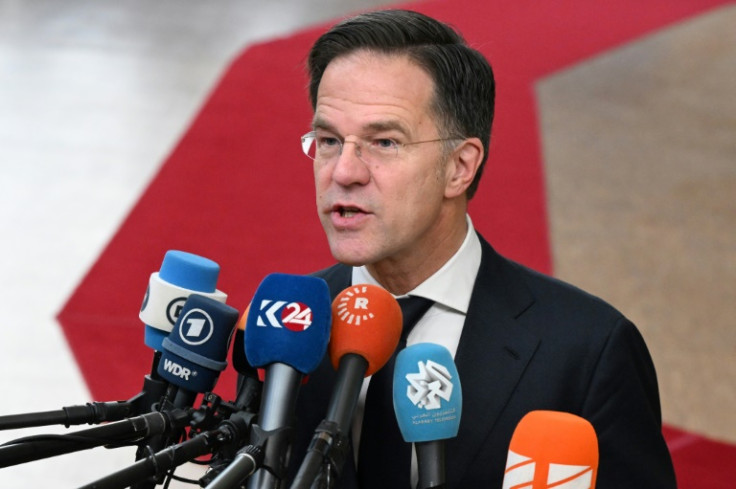US, UK, Germany Back Dutch PM Mark Rutte As Next NATO Chief
The United States, Britain and Germany expressed support Thursday for Dutch Prime Minister Mark Rutte to become the next NATO secretary general, at a crucial time for the alliance in the face of Russia's war against Ukraine.

The United States, Britain and Germany expressed support Thursday for Dutch Prime Minister Mark Rutte to become the next NATO secretary general, at a crucial time for the alliance in the face of Russia's war against Ukraine.
Rutte is the frontrunner to replace Jens Stoltenberg, even though a shock win for the far-right in the recent Netherlands general election risks tarnishing his legacy.
"The United States has made it clear to our allies, our NATO allies, that we believe Mr Rutte would be an excellent secretary general for NATO," White House National Security Council spokesman John Kirby said.
UK Prime Minister Rishi Sunak's spokesman also said that Britain "does strongly back Dutch PM Mark Rutte."
He said the UK wanted a candidate who would "keep NATO strong and deliver on the alliance's NATO 2030 vision."
Rutte, he said, was "well respected across the alliance, has serious defense and security credentials, and will ensure that the alliance remains strong and ready to defend and deter."
German Chancellor Olaf Scholz likewise supports Rutte, a government spokesman said.
"With his immense experience, his great expertise in security policy and his strong diplomatic skills, he is an outstanding candidate," spokesman Steffen Hebestreit said on X, formerly Twitter.
A successor for Stoltenberg -- the former Norwegian prime minister who has overseen NATO for a decade -- is expected to be announced before a July summit in Washington.
After ruling himself out for the NATO post in previous years, Rutte told Dutch media in October that running the military alliance was a "very interesting" job and he would be open to the prospect.
Rutte, 57, is currently serving as prime minister in a transitional capacity after far-right leader Geert Wilders scored a stunning Dutch general election win in November.
A familiar figure on the European stage after 13 years as prime minister, diplomats have already indicated Rutte is favored by NATO heavyweights Britain and Germany, as well as the United States and France.
But although he has emerged as the clear frontrunner, there are other candidates, including Estonian premier Kaja Kallas and Latvia's foreign minister, Krisjanis Karins.
Some supporters want to wrap up Rutte's nomination soon to avoid the NATO job decision coming too close to European Union top positions, which will be up for grabs after European Parliament elections in June.
There is probably still some haggling ahead, and some analysts say there could be opposition to Rutte from Turkey and Hungary.
One potential stumbling block for Rutte could be the situation he leaves behind in the Netherlands, where Wilders's election victory sent shockwaves across Europe.
If he were to succeed Stoltenberg, Rutte would become the fourth Dutchman to head the NATO alliance.
Stoltenberg told AFP last year that Rutte was a "friend and good colleague."
"He is a capable politician with a lot of experience as prime minister," Stoltenberg said.
"But it's not for me to decide who's going to be my successor."
Rutte's government has taken a prominent role in supporting Ukraine, pledging another two billion euros ($2.2 billion) in November, and in leading the push to give Kyiv F-16 fighter jets.
Supporters insist he is fully aware of the dangers posed by Russia.
His years in power were marked by the killing of 196 Dutch nationals when a missile that investigators say was supplied by Moscow shot down a passenger jet over Ukraine in 2014.
Rutte remains at the helm of the Netherlands while Wilders attempts to revive talks on forming a new government, some three months since the election.
Efforts to form a four-party center-right coalition broke down earlier in February when one party withdrew in a row over public finances.
© Copyright AFP 2025. All rights reserved.





















